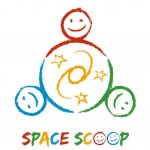Podcaster: Richard Drumm
 Title: Space Scoop: Our Space Senses Are Tingling
Title: Space Scoop: Our Space Senses Are Tingling
Organization:365 Days Of Astronomy
Link : astrosphere.org ; http://unawe.org/kids/unawe1730/
Description: Space scoop, news for children.
Bio: Richard Drumm is President of the Charlottesville Astronomical Society and President of 3D – Drumm Digital Design, a video production company with clients such as Kodak, Xerox and GlaxoSmithKline Pharmaceuticals. He was an observer with the UVa Parallax Program at McCormick Observatory in 1981 & 1982. He has found that his greatest passion in life is public outreach astronomy and he pursues it at every opportunity.
Today’s sponsor: This episode of “365 Days of Astronomy” is sponsored by — no one. We still need sponsors for many days in 2016, so please consider sponsoring a day or two. Just click on the “Donate” button on the lower left side of this webpage, or contact us at signup@365daysofastronomy.org.
Transcript:
This is the 365 Days of Astronomy Podcast. Today we bring you a new episode in our Space Scoop series. This show is produced in collaboration with Universe Awareness, a program that strives to inspire every child with our wonderful cosmos.
Our Space Senses Are Tingling
Humans have at least 5 basic senses that we use to interact with the world around us: sight, smell, touch, taste and hearing.
Many things stimulate more than one of our senses simultaneously.
For example, we can see the light of a bonfire before hearing the crackle of flames or feeling the heat on our skin. The more senses we use to study an object, the better we can understand it.
When it comes to studying space, we’ve always had to rely on light coming from distant objects. But last year, we achieved a new way to detect or “sense” events in the Universe. We can feel ripples in the fabric of the Universe itself!
These ripples are called gravitational waves. They were first suggested by Einstein 100 years ago, but we didn’t have the advanced technology to identify them until just last year.
Those gravitational waves were created by black holes colliding. Black holes are stars with an unusual characteristic: their super-strong gravity swallows-up light.
This makes it impossible for telescopes to see them, we needed a new way to detect them.
On August 17th, 2017, we detected gravitational waves for the sixth time. But for the first time, the event responsible for creating these waves was visible to telescopes, too!
What’s more, the signal was like nothing that had ever been seen before. Yet the source was unmistakable.
It was an event scientists had been waiting to see for a long time: two neutron stars spiraling closer and closer, before crashing violently together. This new type of explosion is called a kilonova.
Neutron stars are small and abnormally dense objects. Unlike black holes, they give off light. Not very much, though, they’re rather dim. They give off mostly X-rays and radio waves.
But collide 2 of them together and they’ll put out lots of light and gravitational waves too!
So for the first time in history we were able to see and feel an event far away in the cosmos!
Hey, Here’s A Cool Fact:
Scientists think that most of the gold on Earth may have been created in kilonova explosions.
I’ll be doing a deep dive on this topic and will be producing a Q&A episode on it for 365 Days of Astronomy for some day in November.
It will, I hope, answer all your questions about why this binary neutron star merger discovery is one of the most important things to happen in a long time.
So stay, uh, tuned!
Thank you for listening to the 365 Days of Astronomy Podcast!
End of podcast:
365 Days of Astronomy
=====================
The 365 Days of Astronomy Podcast is produced by Astrosphere New Media. Audio post-production by Richard Drumm. Bandwidth donated by libsyn.com and wizzard media. You may reproduce and distribute this audio for non-commercial purposes. Please consider supporting the podcast with a few dollars (or Euros!). Visit us on the web at 365DaysOfAstronomy.org or email us at info@365DaysOfAstronomy.org. This year we will celebrate more discoveries and stories from the universe. Join us and share your story. Until tomorrow! Goodbye!


The detection of the gravitational waves produced by the merger of two neutron stars –GW170817– has allowed scientists to fix at 70 km/s per megaparsec * the value of the increase in speed of the expansion of the universe in the 130 million light years that separate us from the origin of said merger.
As these calculations approach the speed of light throughout the age of the universe, we can do the inverse calculation to determine the average increase in the velocity of expansion so that the observable universe is of the age stated by the Big Bang Theory.
The result is 300.000 km/s /(13.799/3,26) Mpc =70,820 km/s Mpc. https://molwick.com/en/gravitation/072-gravitational-waves.html#big-bang